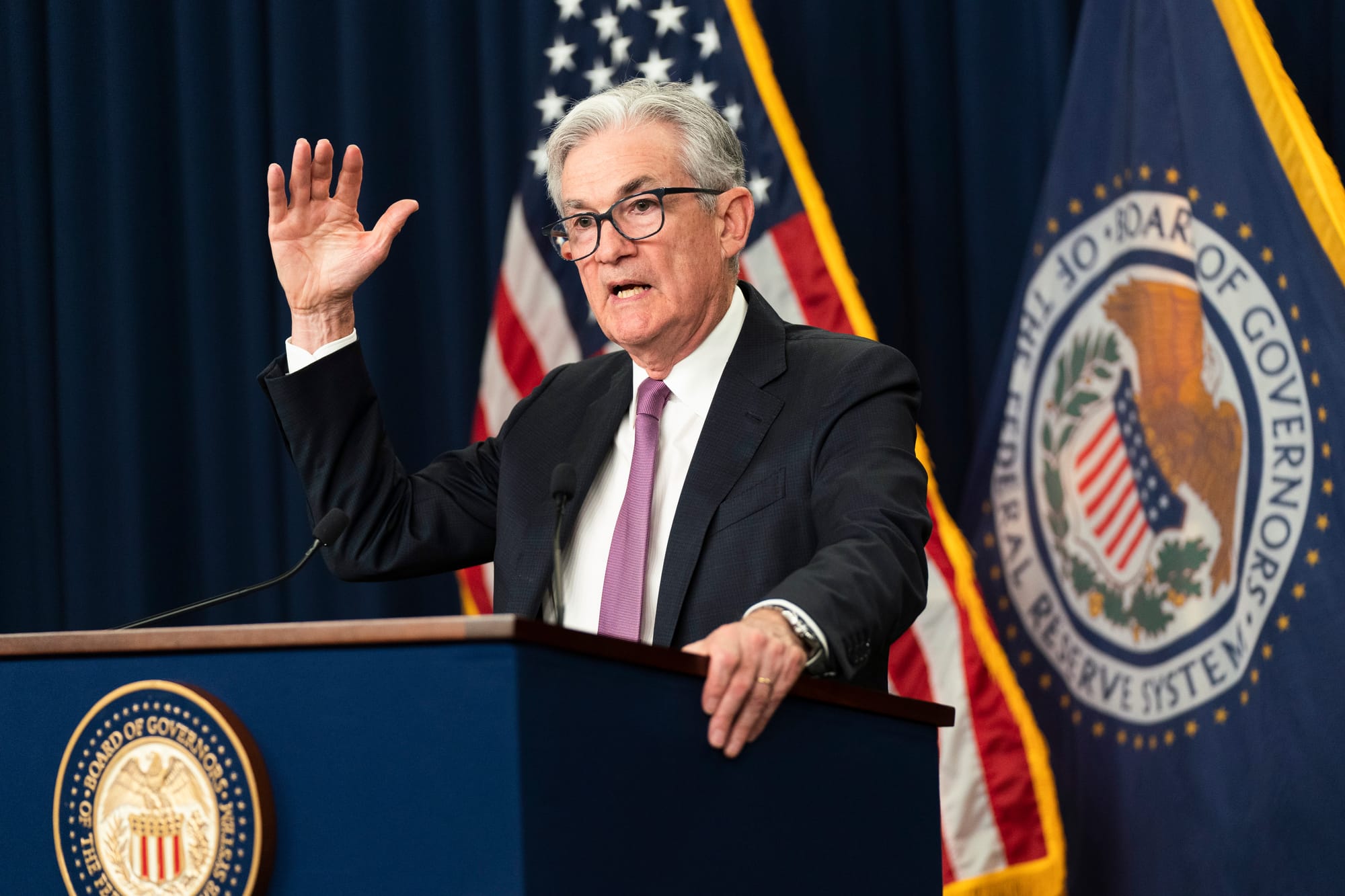Powell Dismisses Inflation Risks, Calls Tariff Impact ‘Transitory’ Amid Market Jitters

Federal Reserve Chair Jerome Powell downplayed growing concerns over economic slowdowns and inflation risks tied to President Donald Trump’s trade tariffs, signaling that the central bank is still on course for two rate cuts this year.

Fed Holds Rates Steady, Tariff Concerns Linger
Following the Federal Open Market Committee’s (FOMC) two-day policy meeting, the Fed opted to keep interest rates steady within the 4.25%-4.5% range. However, Powell’s remarks indicated that despite rising trade tensions and inflation fears, the Fed sees tariff-driven price increases as temporary.
“It can be the case that it’s appropriate sometimes to look through inflation if it’s going to go away quickly without action by us,” Powell said, reviving the controversial term “transitory”—a phrase that proved misleading during the post-pandemic inflation spike.
Despite higher consumer inflation expectations, Powell remained confident that long-run inflation remains well-anchored. He largely dismissed the University of Michigan’s survey data, which indicated that consumers expect prices to rise 3.9% annually over the next five to ten years—the highest in over three decades.
Markets Rally, But Analysts Raise Red Flags
Powell’s comments reassured financial markets, with the S&P 500 climbing and Treasury yields falling as he spoke. However, some analysts remain skeptical, particularly given the Fed’s previous misjudgment of inflation trends.
Ellen Meade, an economist at Duke University, cautioned that Powell may be underestimating the potential for tariffs to entrench inflation. “Powell focused on the initial price shock from tariffs, but not the possibility that tariffs could lead to persistently higher inflation,” she said.
Political Pressures and the Fed’s Balancing Act
Powell’s measured stance comes at a politically charged moment, as the Trump administration moves to exert more control over federal agencies. Some analysts suggest Powell is carefully avoiding direct confrontation with the White House, which has previously criticized Fed policy.
“He’s walking on eggshells,” said Derek Tang of LH Meyer/Monetary Policy Analytics. “The Fed doesn’t want to become a political target, and Powell knows this is a sensitive time.”
Looking Ahead: Is Inflation Really ‘Transitory’?
The Fed now faces a delicate balancing act—acknowledging market optimism for rate cuts while keeping inflation expectations in check. If Powell’s “transitory” call proves inaccurate again, the Fed’s credibility could take a serious hit, complicating future policy moves.
For now, the central bank has bought itself time, but whether that time will work in its favor remains to be seen.
